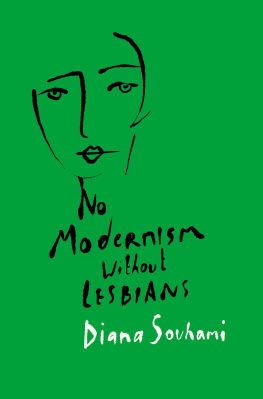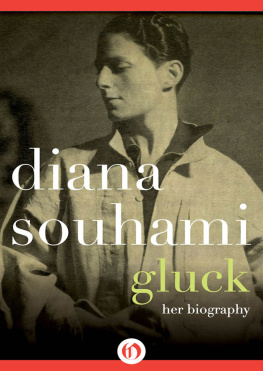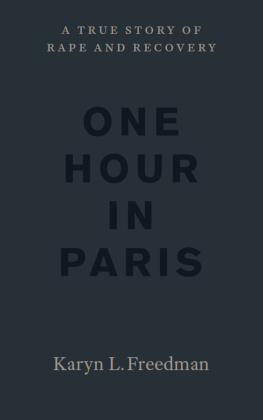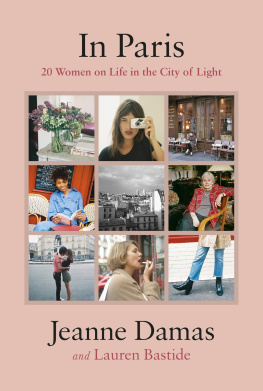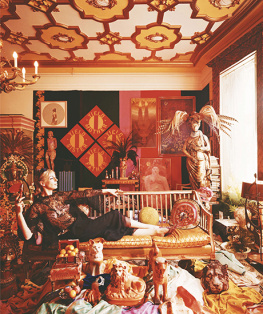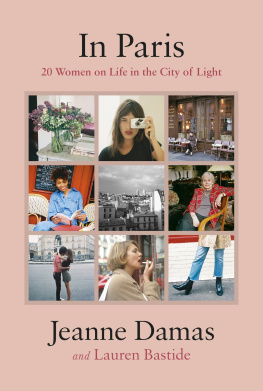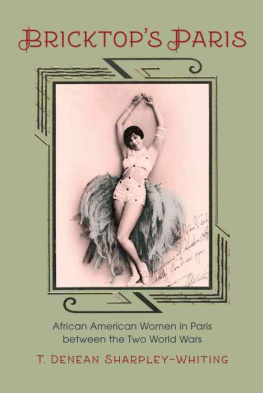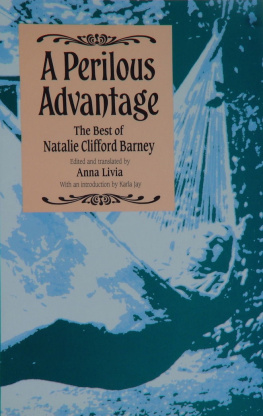


AN APOLLO BOOK
www.headofzeus.com
This is an Apollo book, first published in the UK in 2020 by Head of Zeus Ltd
Copyright Diana Souhami, 2020
The moral right of Diana Souhami to be identified as the author of this work has been asserted in accordance with the Copyright, Designs and Patents Act of 1988.
All rights reserved. No part of this publication may be reproduced, stored in a retrieval system, or transmitted in any form or by any means, electronic, mechanical, photocopying, recording, or otherwise, without the prior permission of both the copyright owner and the above publisher of this book.
A catalogue record for this book is available from the British Library.
ISBN (HB): 9781786694867
ISBN (E): 9781786694850
Design: Anna Morrison
Author photograph: Vera Jacquet
Head of Zeus Ltd
58 Hardwick Street
London EC 1 R 4 RG
WWW . HEADOFZEUS . COM
To LGBTQIAPD, QUILTBAG+,
or whatever gets you to the light
that there are as many minds as there are heads, then there are as many kinds of love as there are hearts.
LEO TOLSTOY
our power from ourselves not from men.
ADRIENNE RICH
CONTENTS
had lovers. And yet as near as I can observe, for thousands of years the concentrated aim of society has been to cut down on kissing. With that same amount of energy [] society could have stopped war, established liberty, given everybody a free education, free bathtubs, free music, free pianos and changed the human mind to boot.
JANET FLANNER
I n the decades before the Second World War, many creative women who loved women fled the repressions and expectations of their home towns, such as Washington and London, and formed a like-minded community in Paris. They wrote and published what they wanted, lived as they chose and were at the vanguard of modernism, the shift into twentieth-century ways of seeing and saying.
I focus on the lives and contribution of Sylvia Beach, Bryher, Natalie Barney and Gertrude Stein three were American, one was English. All rebelled against outworn art and attitudes. Sylvia Beach started the bookshop Shakespeare and Company and published James Joyces Ulysses when no commercial publisher could or would. Bryher, born Winifred Ellerman, daughter of the richest man in England, used her inheritance to fund new writing and film. Natalie Barney aspired to live her life as a work of art and make Paris the sapphic centre of the Western world. Gertrude Stein furthered the careers of modernist painters and writers and broke the mould of English prose. All had women lovers whom they kissed, and they changed the human mind to boot.
Within each of their stories, other women figure large: where would Sylvia Beach be without Adrienne Monnier, Bryher without the imagist poet H.D. (Hilda Doolittle), Natalie Barney without all her lovers, too many to list, or Gertrude Stein without Alice B. Toklas (little Alice B. is the wife for me). And then there were the women friends of the women friends, and the women they kissed too
They gravitated to Paris and each other, turned their backs on patriarchy and created their own society. Rather than staying where they were born and struggling against censorship and outrageous denials and inequalities enforced by male legislators, they took their own power and authority and defied the stigma that conservative society tried to impose on them. Individually, each made a contribution; collectively, they were a revolutionary force in the breakaway movement of modernism, the shock of the new, the innovations in art, writing, film and lifestyle and the fracture from nineteenth-century orthodoxies.
gallery of famous dykes. They formed, he said, an international daisy-chain.
. One need not hide it nor boast of it, though being other than normal is a perilous advantage. She drew up and signed a bespoke marriage contract with one of her partners, Lily de Gramont, duchesse de Clermont-Tonnerre. Its terms would not have been countenanced in her home town of Washington or by the French aristocracy. Gertrude Stein freely called Alice her wife, and Bryher, who chose her own gender-neutral name, viewed herself from an early age as a boy trapped in the body of a girl.
a woman? When obviously she is sleet and hail and a stuffed sea-gull. But in French, sleet is masculine and seagull feminine, so where to draw a line?
There are but twenty-six letters in the Roman alphabet and life is short. Gertrude Stein said of her large white poodle, Basket, that of his ABCs he knew only the Bs Basket, Bread and Ball. With canine simplicity, of my LGBs I use only the Ls Lesbians and Love. This is not to disrespect all efforts of inclusiveness and search for identity and self-expression. I want a place in the rainbow. But I am a tyro in this language class and when writing of past times, todays language seems incongruous. I cannot talk about cisgender for Virginia Woolf, call Bryher they, or struggle with No Modernism Without QUILTBAG+ . And all the initials in the alphabet will not help in what I hope shines through: the uniqueness, the utter singularity of each individual life. I juxtapose four women within the lesbian category. Their juxtaposition shows the inadequacy of any label. I marvel at how different, original and irreplaceable each one is, formed by their childhood, their nature and nurture, imaginative in their contribution, unique in who they happen to be. Lining them up highlights their differences. For, of course, what matters from A to Z is not what you are, but how you are what you are, and the contribution made.
In the early decades of the twentieth century, censorship laws in Britain and America prevented lesbians from publishing anything in fiction or fact about their love lives. The subject matter was deemed obscene. Sex between consenting men was a criminal act. The 1895 trial and ruin of Oscar Wilde hung in the air of English society. Sex between consenting women was not illegal. Silence was the weapon of its repression.
In 1920, Violet Trefusis and Vita Sackville-West caused a furore when they eloped to France and their respective husbands piloted a plane to bring them back. The following year, a Conservative member of parliament, Frederick Macquisten, a ministers son, proposed that a clause Acts of Gross Indecency Between Female Persons be added to the Criminal Law Amendment Act of 1885, which indicted Oscar Wilde. Lesbianism, he told the House of Commons, threatened the birth rate, debauched young girls and induced neurasthenia and insanity. His clause was agreed and went to the House of Lords to be ratified.
the whole world there is such an offence, to bring it to the notice of women who have never heard of it, never thought of it, never dreamed of it. I think this is a very great mischief.
Lord Birkenhead, the Lord Chancellor, agreed:
that of every 1,000 women, taken as a whole, 999 have never even heard a whisper of these practices. Among all these, in the homes of this country, the taint of this noxious and horrible suspicion is to be imparted.
Whispered or heard, these practices, Birkenhead believed, would cause contagion. In the home of his mind, a womans place was on his arm and in his bed.

